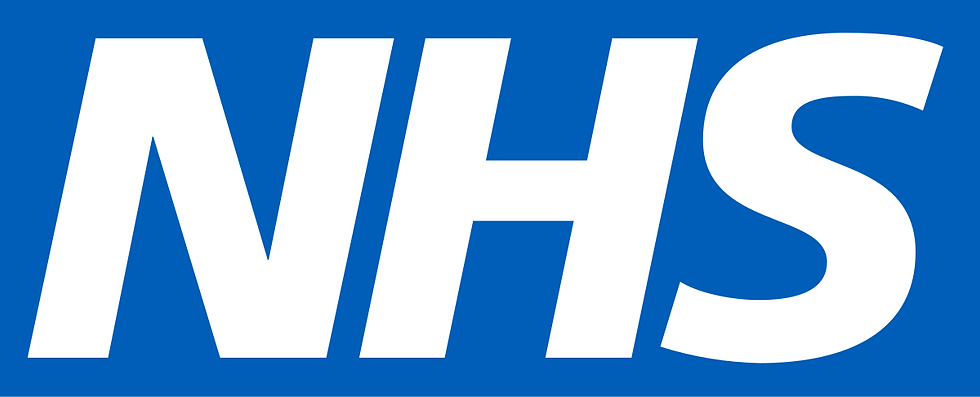The Unforeseen Crisis: Examining the Collapse of the NHS
- kim46022
- Apr 1
- 4 min read
The National Health Service (NHS) has been a key part of British life since 1948, offering free healthcare based on need, not ability to pay. However, today it faces significant challenges that jeopardize its existence. Understanding these issues is crucial as they will shape the future of healthcare in the UK.
Historical Context
The NHS was created to provide comprehensive health services funded by taxes. Over the years, it has adapted to new medical technologies and changes in society. Nevertheless, the core mission of delivering healthcare to everyone remains unchanged.
Despite early successes, the NHS has faced persistent challenges. A mix of financial troubles, an increasing number of patients, and an aging population have tested its limits. For example, in 2022 alone, NHS funding fell behind inflation by about 5%, putting even more strain on an already stretched system.
Financial Strain
One of the main problems is the financial strain on the NHS. Recent reports show that demand for services has outpaced funding. In fact, a survey indicated that 80% of healthcare professionals believe that insufficient funds impact the quality of care provided.
The impact of budget cuts over the last decade has made this situation worse. Staff workloads have increased dramatically, with many healthcare workers reporting that they handle up to 30% more patients than they can effectively care for. This situation creates a cycle of burnout, leading to lower morale and making it harder to provide safe, quality care.
Staffing Challenges
Staffing is crucial for the NHS, but high turnover rates are a growing concern. Many healthcare workers feel overworked and undervalued, leading to a staggering attrition rate of around 20% annually. The COVID-19 pandemic only deepened these issues, as healthcare workers faced unrelenting pressure and many left the profession altogether.
Longer waiting times for patients now average 12 weeks for routine treatments. This inadequate workforce translates directly into worse outcomes for those in need of immediate care.
Increasing Patient Demand
With the UK's population rising and medical advancements treating conditions once thought fatal, the demand for healthcare has surged. For instance, heart disease, once a leading cause of death, is now treatable thanks to advancements in medicine. This change has led to more patients seeking care than ever before.
As patients also expect immediate access to healthcare services, the frustration builds when they experience delays. Surveys reveal that 70% of patients are dissatisfied with waiting times. This growing demand coupled with reduced resources creates a perfect storm for the NHS.
Political and Systemic Issues
Political choices and systemic flaws are also significant contributors to the NHS crisis. Frequent changes in health policy can lead to instability within the healthcare system, making it hard to plan effectively. Discussions about privatizing certain NHS services foster distrust among the public, as many fear the loss of essential values that underpin the NHS.
Transparency is vital; without it, public confidence will erode. Citizens must feel assured that the NHS is equipped to deliver the care they need.
Impact of Technology and Innovation
While technology has the potential to enhance healthcare delivery, it can also complicate existing problems. Implementing new systems often requires substantial investment and training. For example, integrating electronic patient records has been slow, with only 60% of hospitals fully adopting these systems.
Moreover, inconsistencies between various technology platforms can cause gaps in patient information, leading to unnecessary delays in care. There is also a growing digital divide, where both patients and staff may struggle to access life-saving technologies.
Mental Health Services
Mental health awareness has improved, but services still lag behind those for physical health. Demand for mental health support has risen by over 25% in recent years, but available resources have not kept up.
Patients frequently experience wait times exceeding three months for mental health assessments. Stigma surrounding mental health issues remains prevalent and can prevent people from seeking help. Creating a more equitable balance between mental and physical health services is essential for the overall wellbeing of the population.
Public Perception and Trust
Public trust in the NHS is pivotal and is currently under strain. Many patients facing long wait times or poor care quality are turning to private healthcare, further challenging the NHS's foundation.
To rebuild trust, the NHS needs to strengthen community ties and promote transparency about how resources are allocated. People must believe that their healthcare system can meet their needs effectively.

Potential Solutions
Addressing this crisis requires collaborative and comprehensive strategies. First, increasing funding is vital. Without adequate resources, the NHS cannot tackle staffing shortages or enhance care quality.
A sustainable workforce strategy is also crucial. Improving working conditions, offering competitive salaries, and providing mental health support can help retain existing staff and attract new talent.
Investing in technology must be strategic. The focus should be on tools that genuinely enhance care rather than overwhelm staff. Additionally, prioritizing mental health services can foster a healthcare environment that values all aspects of health equally.
Looking Ahead
The challenges facing the NHS reflect broader societal values regarding health and community. Tackling this crisis requires a joint effort. Though daunting, the current situation also offers a chance for meaningful reform.
The journey to a more resilient NHS will take time and commitment. With thoughtful investments, strong public support, and decisive political action, we can reinforce the NHS’s commitment to health as a basic human right.
As discussions about healthcare's future continue, there is hope that changes can redirect the NHS away from collapse and toward a sustainable, bright horizon.



Comments